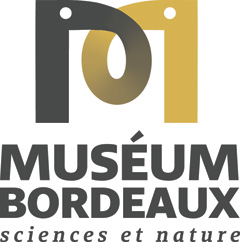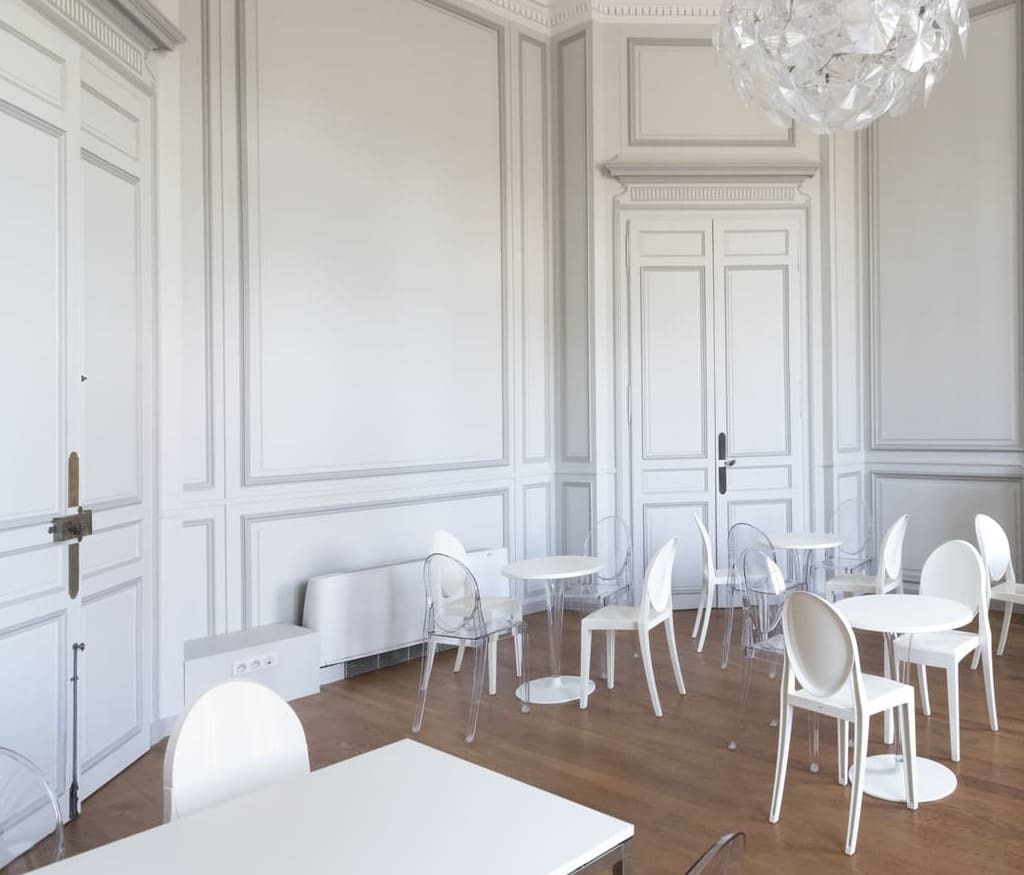Getting to the Museum of Bordeaux
5 Place Bardineau – 33000 Bordeaux
By foot: via the Public Garden-Entrances: Place Bardineau / Place du Champ de Mars / Cours Verdun / Rue d’Aviau / Rue de la Course / Place Longchamps
By tram: Line B – Quinconces tram stop / Line C – Jardin Public tram stop / Line D – Fondaudège Muséum stop
By bus: 4, 5N or 15 Jardin Public bus stop / 6 Rue d’Aviau bus stop
By bike: Vcub stations close
By car: nearest car parks – Auditorium / Tourny / Allée de Bristol
Visiting the Museum of Bordeaux
Come and discover the Museum of Bordeaux – science and nature!
Permanent and temporary exhibitions, a multimedia show, workshops and countless surprises promise to make each visit a unique experience.
Round off your visit with a tour of the Art and Science Square.
Historic architecture and contemporary design create the perfect conditions to explore the collections.
A team of facilitators is on hand to guide you along your journey through the world of science and natural history.
To plan your visit, browse the different levels of the museum.
Opening times
Open Tuesday to Sunday
Closed Mondays
Closed on public holidays except on 14 July and 15 August
- Opening times from April to September
10.30 am–6 pm
- Opening times from october to March
10.30 am–5.30 pm
Prices
| Full admission – during temporary exhibition | 8,00 € |
| Full admission – outside temporary exhibition period | 6,00 € |
| Concession – during temporary exhibition | 4,50 € |
| Concession – outside temporary exhibition period | 3,50 € |
| From 6 to 18 years old | 3,50 € |
| Student under 26 years old | 2,00 € |
Provide payment via cash, credit card, bank check
Holiday vouchers are not accepted.
Access – a priority for the Museum of Bordeaux
The new square in front of the building provides more space for people to meet and gather and facilitates access to the Museum of Bordeaux.
For improved accessibility, the Hôtel de Lisleferme has been made fully compliant with current access standards. The museum exhibitions have been redesigned to improve both physical access and the opportunity to learn. A new lift completes the accessibility improvements. Various amenities such as audio loops, tactile exhibits and a multimedia show offer unique ways to access the collections and exhibitions.
Improved accessibility is further enhanced with guidance during your visit. A team of roving facilitators is stationed around the different rooms of the museum to assist you, answer your questions and lead activities. The multimedia terminals around the museum are designed to further your knowledge.
Facilities at the Museum of Bordeaux
For your convenience, the museum has a cloakroom and buggy store located on the ground floor.
Midway through your visit, why not take a break in the relaxation area? Enjoy the comfort of our inviting oval lounge decorated in the 18th century style or the square lounge where refreshments are available. This is the ideal spot to have something to eat or drink or simply sit down for a moment.
To make your visit even more comfortable, folding chairs are available on every floor of the museum.
Also baby changing tables are available in the Early years Museum and on the first floor.
Before you leave, check out the wonderful gift ideas in the museum shop.
About the Museum of Bordeaux – Science and Nature

























The Museum of Bordeaux has occupied the Hôtel de Lisleferme, a stately home set in the Public Garden, since 1862.
The museum is a testament to the remarkable transformation Bordeaux has undergone through the years. The Hôtel de Lisleferme, the Public Garden and the botanical garden form a green lung in the centre of the city.
It is also a great starting point for a city walk around the area. From the Museum of Bordeaux, it’s just a stone’s throw to go and admire artworks in the CAPC, the city’s contemporary art museum, stroll along the quayside or learn all there is to know about the region’s wine at the Centre Interculturel des Vins de Bordeaux, passing through the vast Place des Quinconces en route. From the Triangle to Chartrons, not forgetting Rue Fondaudège, the vibrant areas around the Museum offer a host of things to see and do.
The CAPC is the city’s contemporary art museum, an iconic place where you can check out the best of emerging art. Its collections now occupy the Entrepôt Lainé, the former colonial produce warehouse.
The collection of nearly 1,300 artworks produced by 189 artists is one of the most extensive in France.
This centre devoted to contemporary visual arts puts on a regular programme of temporary exhibitions, guided tours and art workshops.
Located within the Public Garden close to the Museum of Bordeaux, this is the only municipal library in the city aimed at young readers.
Kids are welcome to find a spot on the carpet and check out the collections of music albums, stories, documentaries, comic books and novels. Public facilities also include desks, special events and Internet connection.
A 10-minute walk from the Museum of Bordeaux, the Esplanade des Quinconces covers roughly 31 acres and is the largest city square in France and one of the largest in Europe. It was constructed in 1828 on the site of the Château Trompette.
Composed of a gently sloping esplanade down to the Garonne River, it is recognisable for its monument dedicated to the Girondin revolutionaries and the two rostral columns at its far ends. Half of the square is planted with trees arranged in a quincunx formation, hence its name.
It is a popular site for holding major public events like the Foire aux Plaisirs, the Bordeaux autumn faire and concerts.
Built in 1748 based on a typically French style, the first garden was designed by Ange-Jacques Gabriel, first architect to King Louis XV, and situated at the edge of the city. Landscape architect Fischer transformed the original garden into a romantic English formal garden replete with winding pathways, in 1856.
Listed as an Historic Monument in 1935, the Public Garden is an impressive composition of features which have earned it the prestigious title of ‘Remarkable Garden of France’. These elements include an original wrought-iron gate, a serpentine river built in 1856 and three contemporary bridges.
Legions of different tree and animal species were introduced to create a welcoming space where the public can soak up the sunshine and check out the ‘book box’.
Built in 1965, the Salle des Fêtes du Grand-Parc is a function hall that was closed down in the 1990s for safety reasons before it was reopened in 2018.
The renovation of this iconic landmark in Bordeaux has created new spaces for hosting a wide programme of cultural events, from concerts, comedy shows and theatre to dance, conferences and seminars.
The Palais Gallien, the only surviving remains of Bordeaux’ Gallo-Roman past, is a former amphitheatre located 300 metres from the Public Garden and the Museum of Bordeaux. A games arena in the Roman era, in more recent times it has been used as a quarry and a landfill.
A symbol of the city’s expansion, it has partially been absorbed by more recent housing and is now an integral part of Bordeaux city centre. Take a moment to walk around the outside of the Museum of Bordeaux and check out the remains of the Palais Gallien.









